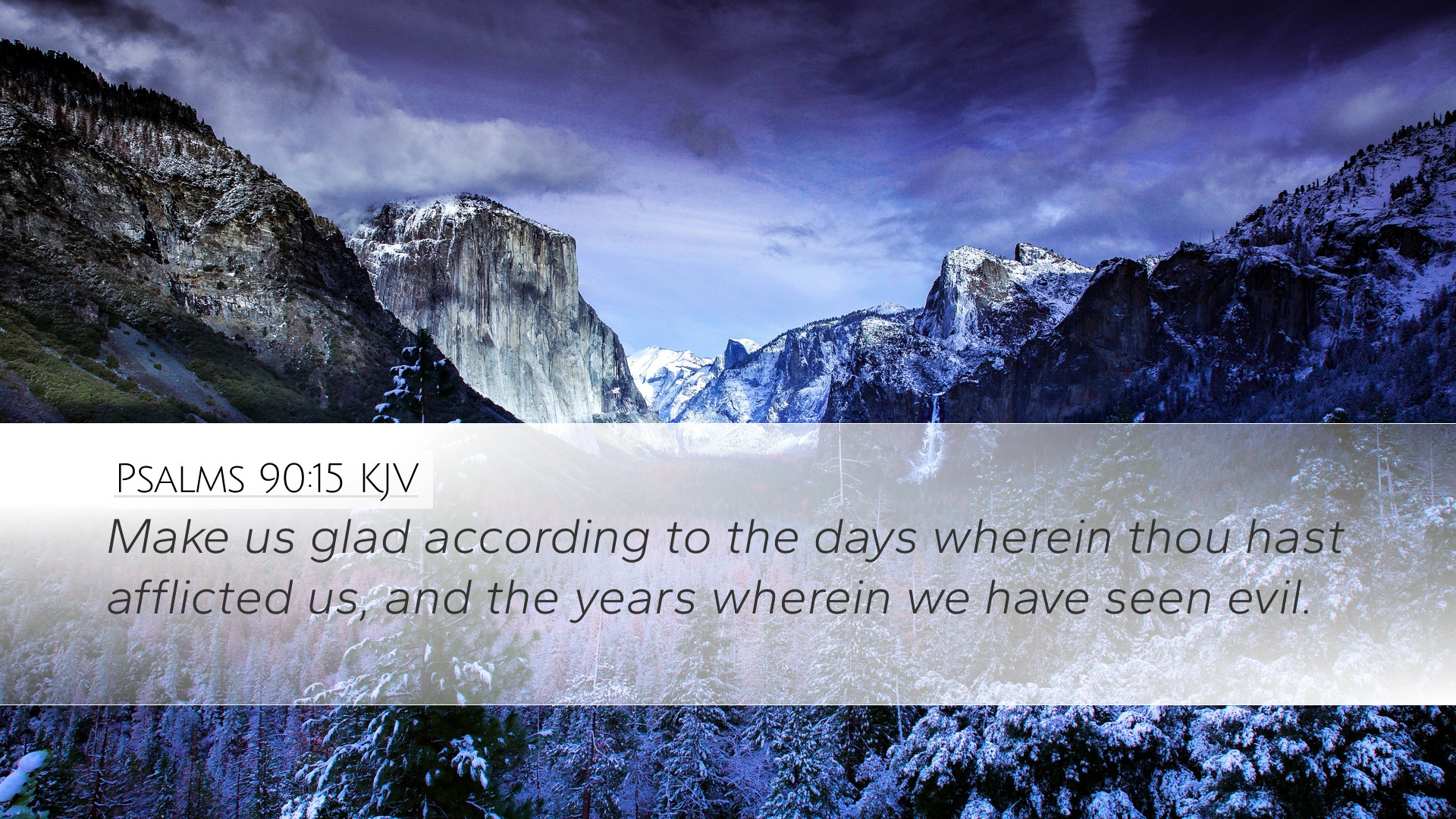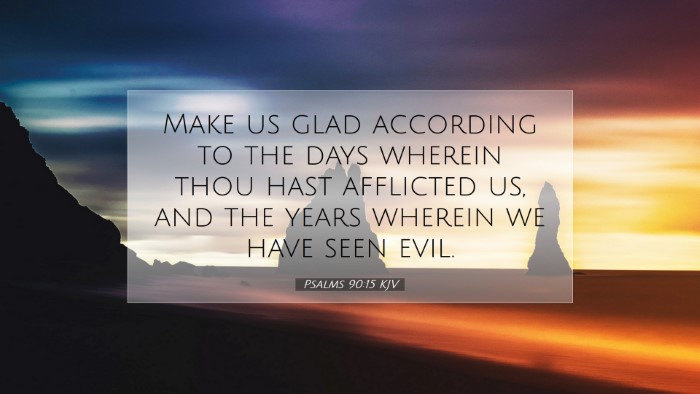Psalms 90:15 Commentary
Verse Text: "Make us glad according to the days wherein thou hast afflicted us, and the years wherein we have seen evil."
Contextual Overview
The 90th Psalm, attributed to Moses, is a profound meditation on the nature of God in relation to humanity's transient condition. This verse, Psalm 90:15, is set within a broader reflection on the afflictions and challenges that life brings. Its central themes include human mortality, divine judgment, and the need for restoration and joy amidst suffering.
Exegesis of Key Concepts
- Affliction as a Catalyst for Growth: The psalmist acknowledges that affliction is part of the human experience. Henry notes that it is through suffering that one often comes to appreciate joy more fully. The plea for gladness is set in the context of past trials, emphasizing a transformation of suffering into a source of spiritual renewal.
- The Divine Nature of Gladness: The request for gladness indicates an understanding that true joy is imparted by God alone. Clarke remarks that the psalmist seeks divine intervention in their emotional state—a clear recognition that human attempts at happiness often fall short without God's aid.
- Temporal Existence: Barnes underscores the transitory nature of life, emphasizing that the "days" and "years" represent a limited time span within which humans must relate to God. The correlation between the afflictions faced and the desire for joy highlights the deep human longing for a balance in life that can only be remedied through God's grace.
Theological Implications
This verse raises profound theological implications regarding the character of God and His engagement with humanity. As the Creator, God is portrayed not only as sovereign but also as intimately involved in the sufferings of His people. The psalmist's plea reflects a broader theological theme found throughout scripture: the promise of God's presence even in the midst of trials.
Divine Compassion
Compassionate Care: Various commentaries highlight the aspect of God's mercy—particularly how He is aware of human suffering and actively engages with it. Henry articulates this idea by noting that God's compassion allows Him to turn our sorrows into joy, emphasizing the hope that believers can cling to in distressing times.
Hope in Restoration
Transformation of Suffering: The request for joy following affliction also hints at the redemptive power of God to transform life's difficulties into blessings. Barnes notes that such a request implies faith in God's ability to restore and renew. The cycle of affliction followed by gladness mirrors the Gospel narrative, where suffering precedes glory.
Liturgical Significance
This verse has liturgical significance in its potential use during moments of communal remembrance of suffering, as well as celebrations of renewal. It serves as a reminder to congregations of the ebb and flow of life and the steadfast love of God. Clarke suggests that recognizing past afflictions can lead to a deeper appreciation of present joys, making this verse a rich resource for pastoral care and liturgical celebration.
Practical Application
For pastors and students studying this scripture, it's essential to approach it with an eye toward both personal and communal application:
- Encouragement in Suffering: The message of seeking joy amid trials can be a source of comfort for those facing hardship. It reminds individuals that their struggles are temporary and that joy can emerge from their pain.
- Shared Experience: This verse lends itself to discussions about shared experiences of affliction within church communities. Pastors can utilize it to foster connection among congregants who may feel isolated in their struggles.
- Faithfulness in Prayer: The direct address to God in this verse emphasizes the importance of prayer as a means to express distress and seek divine intervention. Encouraging a culture of prayer can lead to a greater reliance on God’s grace among believers.
Conclusion
Psalms 90:15 encapsulates the tension between human suffering and divine joy. It invites theological reflection on God's nature as compassionate and restorative. As believers engage with this heartfelt plea, they are reminded of the reality of their circumstances while being led towards hope and joy through God's faithful presence. For scholars and theologians alike, this psalm holds rich insights into the human condition and the divine response, making it a valuable text for further study and contemplation.


